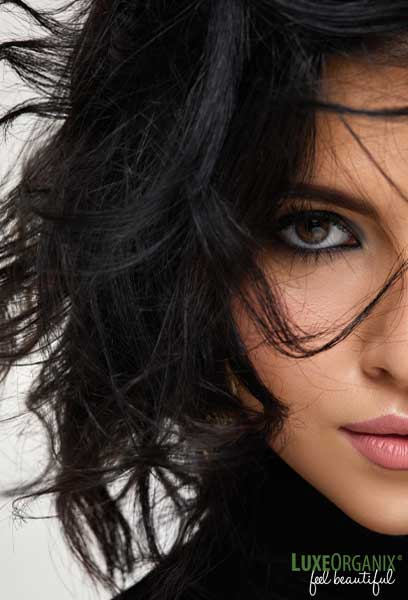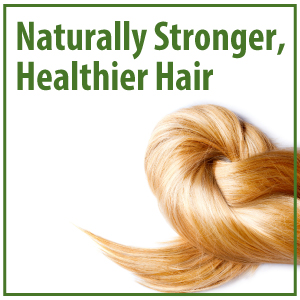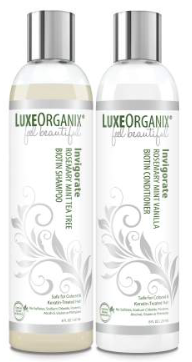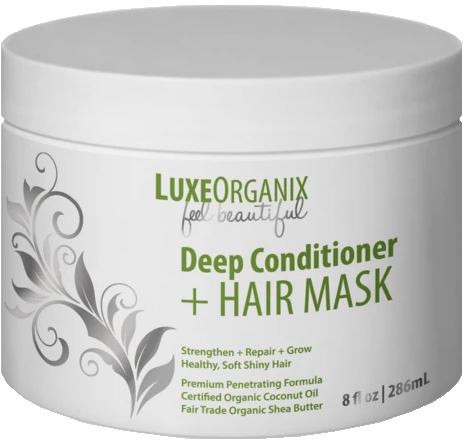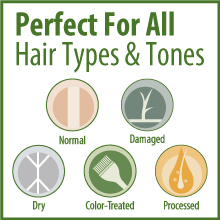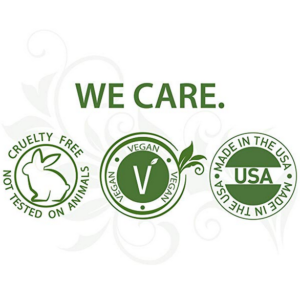A 2018 consumer survey by Swiss personal care ingredient manufacturer Gattefossé revealed that 46% of the women surveyed were somewhat dissatisfied with the state of their hair.
The frizzies, thinning hair, dry hair, hair that breaks, unmanageable hair… all of these were mentioned.
With all that’s going on in the world, we don’t imagine it’s gotten much better.
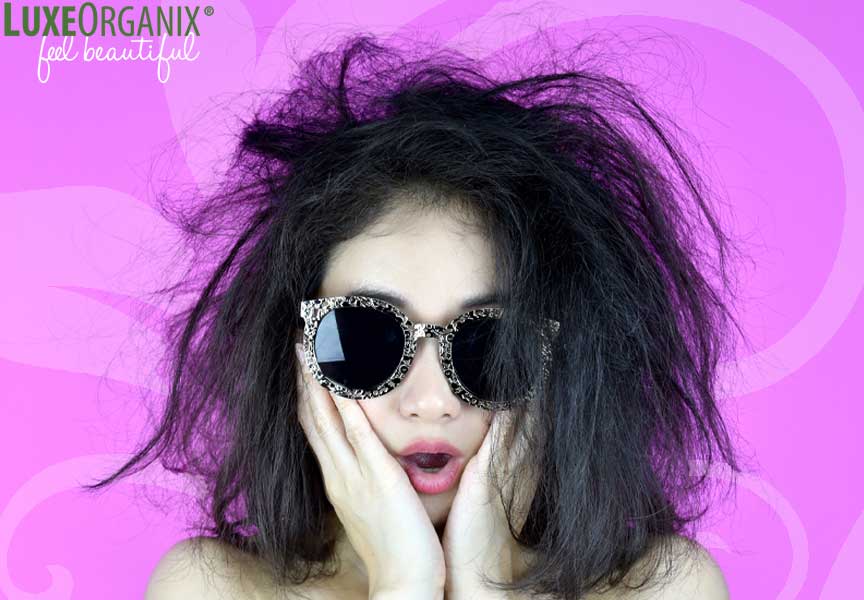
Life is too short to be unhappy with your hair! Plus, whatever the root cause of your concern is, you can fix it.
Let’s break your hair concerns into a few groups: hair loss, dry and damaged hair, and styling woes.
- Hair loss includes hair that is falling out in clumps, or more hair than normal falling out naturally when you brush or touch it.
- Dry and damaged hair includes hair that seems weak and prone to breaking, hair that feels or looks like straw, or that has a lot of split ends.
- And styling woes might include anything like flat, dull, frizzy hair, or hair that just cannot be tamed.
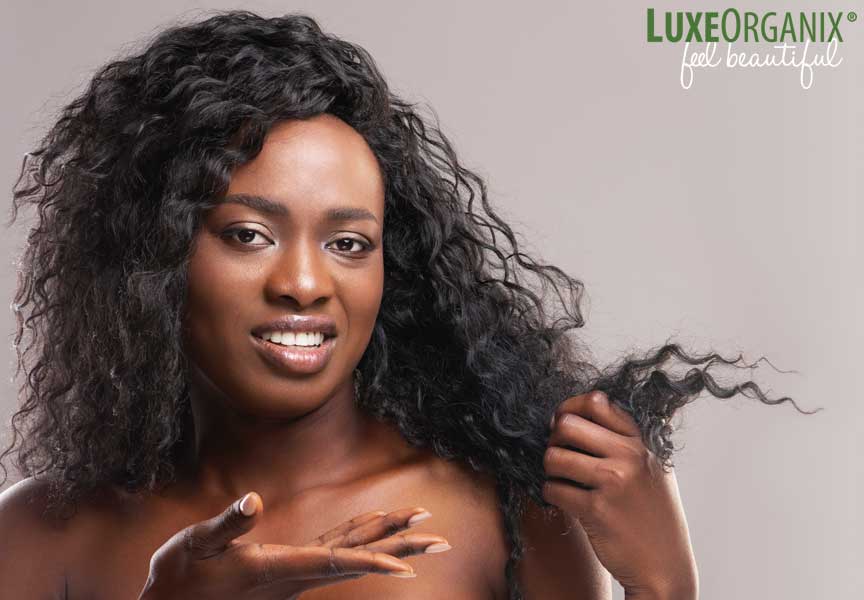
Is it Stress?
Many people just take their hair as it is and think that’s the best it will be. But these hair issues might actually be the result of stress or anxiety.
Hair stress is a real thing. It can result in dry and damaged hair, dullness, thinning, and hair loss. And those untamable bad hair days… yep! Stress might be a contributing factor.
Dry & Damaged Hair
While there’s plenty of evidence showing a link between stress and hair loss, stress can also lead to dryness, dull or lackluster hair, and breakage.
Stress and anxiety cause changes in your body. Most commonly, and often unseen, are the changes to the type and amount of hormones in your body. Any increase or decrease in your body’s hormones can result in changes to the strength and texture of your hair.
For example, when estrogen levels rise during pregnancy, hair can become shinier, and more manageable. This occurs because the hair follicle gets slightly sturdier, and less prone to frizzing. There’s also an increased blood flow and more nutrients in your body, both of which benefit your scalp. Many women experience their best hair texture during pregnancy. On the other hand, menopause causes androgen hormone levels to increase, while estrogen levels drop in response. This results in thinning hair and a dryer scalp, which weakens hair follicles.
Hair Loss
Stress can push your hair follicles into a “resting” phase so that they don’t produce new hair strands. Over time, strands can fall out more easily, even if you’re just washing, combing, or touching it. Because your hair is in the resting phase, these stands do not get replaced.
Telogen effluvium is a form of temporary hair loss that happens after stress, a shock, or a traumatic event. It causes diffuse thinning, a type of hair loss that affects your entire scalp. If you have telogen effluvium, your hair will look thinner and less dense than normal, especially under bright light.
Telogen effluvium can also be caused by poor nutrition and changes in hormone levels.
Styling Woes
If you’re struggling to tame an unruly mane, stress might be to blame. Frizzy, dry hair, as mentioned above, can be caused by hormone changes because of the stress you’re feeling. Before you cut it all off in a pixie (though we’re sure you’d look amazing!) consider adding products to gently tame your troubles.
Stress and changes in your hair don’t have to be permanent.
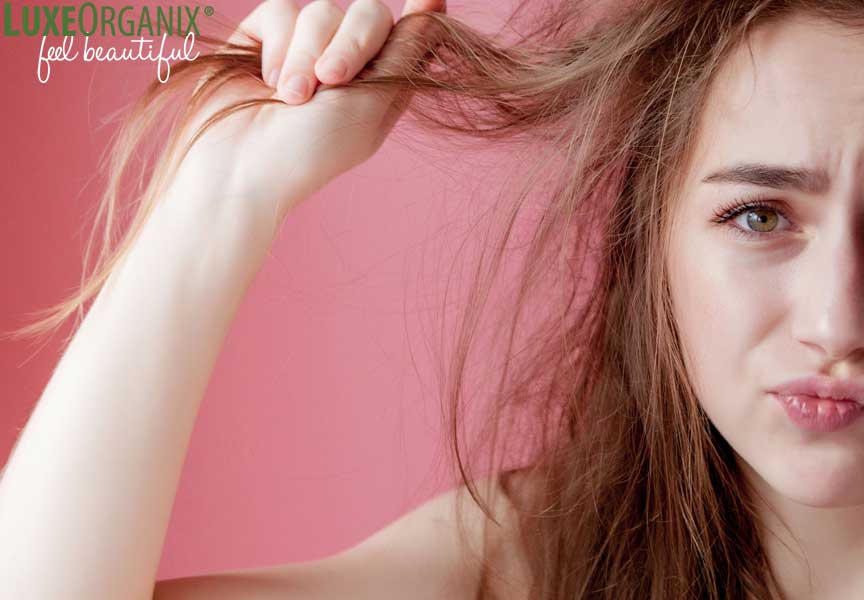
So how do you take the stress out of your hair?
First, check in with your healthcare professional just to rule out any medical conditions for the changes in your hair.
Once you get the green light, it’s time to grow your best hair ever.
Ready? …Let’s do it!
Feed Your Scalp
Beautiful, healthy hair starts at the scalp. When your scalp is healthy, not dry and itchy, your hair follicles are strong and nourished.
Give your hair much-needed nutrition by enjoying a healthy diet, taking your vitamins, and using products designed to nourish your scalp.
Products with biotin, like LuxeOrganix Biotin Shampoo and Conditioner, help strengthen your hair and promote healthier hair growth. This biotin power pair gently stimulates and soothes your scalp with healing anti-inflammatory essential oils and plant extracts that overcome and prevent scalp issues. The shampoo and conditioner are loaded with organic and natural ingredients that work to relieve dryness and itching on your scalp, returning it to its proper pH levels.

Care for Your Hair
A common reason for unmanageable hair is too little or too much moisture or protein.
So how can you tell if you need moisture or protein? The easiest way to determine what you need is the pull test. Take a wet or dry strand of your hair and gently stretch it. If it barely stretches and snaps, you need more moisture and you might have too much protein.
Also, if you brush your hair and strands fall out, you need protein.
To relieve dryness and lock moisture in, treat your hair with an occasional deep conditioner. Hair that is properly moisturized is bouncy, shiny, and soft. LuxeOrganix Deep Conditioner Hair Mask is safe for all hair types, paraben and sulfate-free, and it’s also safe for keratin and color-treated hair. This conditioning mask transforms dull, dry hair with botanicals and vitamins (A, C, D, and E), and hydrates with anti-drying ingredients, including Certified Organic Virgin Coconut Oil and Certified Organic Fair Trade Shea Butter.
To add protein, try LuxeOrganix Bond Integrity Protein Treatment. This ultra-nourishing and gentle protein treatment mask works wonders on your hair and your senses! Ancient amino acids from hydrolyzed rice and quinoa proteins, panthenol (vitamin B-5), and 2% biotin strengthen & support the integrity of bonds in your hair.
Organic aloe, shea butter, jojoba, hemp, and coconut oils deeply hydrate and smooth, leaving your hair feeling voluminous, strong, and healthy.
Reduce Your Stress
It’s not easy to take the stress out of your everyday life, but you can take steps to manage it. Self-care is an important aspect of stress management and hair care.
Do things you enjoy, find reasons to laugh out loud, exercise, call a friend, or take a nap under your favorite tree… whatever you do, make time for you. Self-care is a great way to manage stress.
If you get your stress under control, you’re giving your hair the nudge it needs to grow healthy again.
